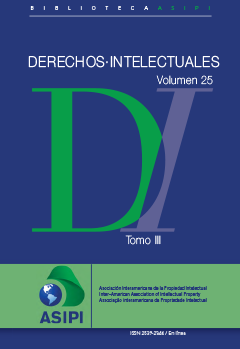Intellectual Rights 25, volume III
Definitely ASIPI is a living organization that works hard and takes challenges as opportunities. Not in any other way can we interpret the fact that each year we receive more articles for our now emblematic magazine “Intellectual Rights”.
This time we reached number 25, we celebrated the silver anniversary and we received a record number of papers –21– that deal with all kinds of current issues for the subject that unites us: intellectual property.
In this issue the reader will be able to find information on traditional and no less important topics, analysis on cutting-edge topics that we are just trying to understand and studies that, although they seem to interest only one country, ultimately concern us all.
- Elisabeth Siemsen
Attached Files
DI-25-ASIPI-T3.pdf



